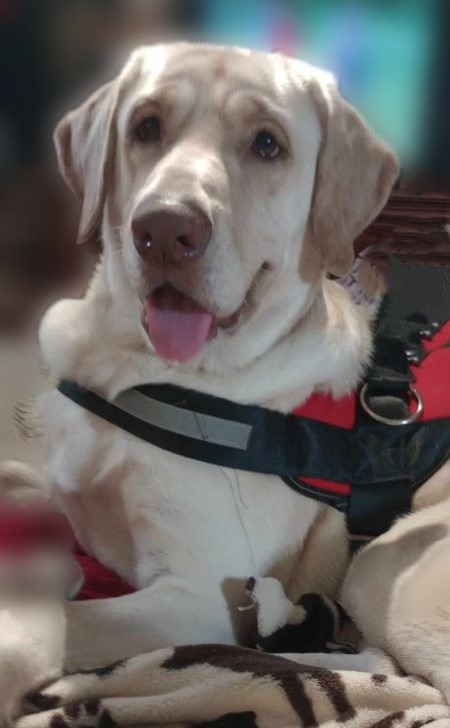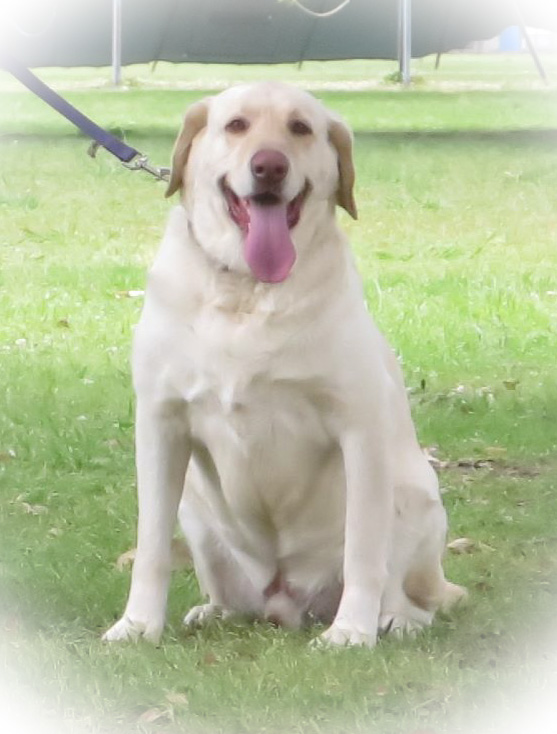News
Latest News Items:
HELP BLANCO -- Monday May 20th, 2024 Will you HELP BLANCO
Blanco Needs Your Financial Help to Fund his Surgeryfor Hip Dysplasia
Can you help ARFLA with financial expenses for surgery for handsome Blanco for Hip Dysplasia, a common skeletal condition? This painful condition can drastically reduce a dog's quality of life. In blanco's case, it has put him in a hard-to-adopt-out grouping. With YOUR HELP, he can receive the surgery needed so he can find HIS FOREVER HOME! For more information on Hip Dysplasia, click here: https://www.akc.org/expert-advice/health/hip-dysplasia-in-dogs/ Blanco is a lovable Labrador Retriever that ARFLA rescued 1 year ago, as a stray. His hip condition was minor at the time, but we immediately began treatment for a terrible inner ear infection. His hip condition gradually became worse so he was put on glucosamine joint supplements. The supplements did gradually give him some comfort; however, he now favors his other back leg from taking some weight off the diseased right hip. Blanco LOVES to play ball, but can barely run now to chase the ball.
For a non-profit organization these medical expenses can be quite a burden. So we are asking YOU, our faithful friends and supporters, to make a donation of any amount. This sweet boy has so much love to give and deserves to be healthy so he can find HIS forever home and enjoy all that life has in store for him! Blanco has been accepted for adoption with Labs4Rescue, a national organization, which will broaden his chances to find a wonderful forever family. You can see his current web page @ Blanco available for adoption L4R . To Donate Safely to ARFLA for Blanco’s Surgery Fund:
Or
Please note Blanco’s Surgery Fund when making donation.
“ARFLA is a 501©(3)Non Profit Rescue Organization.
Your donations are tax deductible. ”
2020 Raffle Tickets - Chitimacha Louisiana Open -- Friday May 8th, 2020
Heat and Humidity Affect -- Sunday July 10th, 2011  Dangerous Conditions:
How Heat and Humidity Affect Your Dog
By: Alex Lieber You checked the temperature before taking your dog out on a morning run. When the door opens, however, the two of you are greeted by a blast of heat. The temperature seems much hotter than it actually is. Although the thermometer may read 75 degrees Fahrenheit, the Temperature-Humidity Index makes it feel much hotter. The index is a term used since 1959 to indicate the degree of discomfort caused by the combination of temperature and humidity in warm weather. The Temperature-Humidity Index (usually just called the Heat Index) is like the wind chill factor during winter when the wind makes the temperature feel colder than it actually is. Temperature and humidity (the amount of water vapor in the air) are factors translated by equations into an index that ranges from 43 to 103. In humid air, perspiration does not evaporate as readily, making it difficult for people and animals to cool down efficiently. As the humidity increases, the environment feels warmer than it actually is. This perception is expressed by the heat index. An apparent temperature, or heat index, of 105 F can be reached when the air temperature is only 90 F, and the relative humidity is 70 percent. Puppies and kittens up to 6 months of age.
Geriatric pets (large breed dogs over 7 years of age, small breed dogs over 14 years of age, cats over 12 years of age).
Pets who are overweight.
Pets who overexert during work or exercise.
Pets who are ill or on certain medications.
Brachycephalic pets (such as bulldogs or pugs) or pets with a history of an airway obstruction.
Those with fever, dehydration, heart disease or poor circulation.
Prevention Heat index greater then 72 (start precautions for at-risk breeds).
Heat index great than 75 (use absolute precautions for at-risk breeds).
Precautions include the following: Keep pets in well ventilated areas.
Minimize exercise in hot weather.
Do not leave your pet in a car for any reason at any time.
Keep pets in the house in a comfortable environment during extreme weather conditions if possible.
Limit sun exposure during the mid-day hours.
Give your pet plenty of fresh water, and leave the water in a shady area.
For a sudden high temperature change – allow your pet to acclimate.
Many cases of heat illness occur in the spring when your pet is not yet used to the new temperatures. If traveling to a hotter climate, allow several days to become acclimated before allowing any vigorous exercise for your pet; work up to it gradually.
This article has been provided courtesy of PetPlace.com (www.petplace.com), the definitive online source for pet news, health, and wellness information." July 4th Fireworks Safety -- Sunday July 3rd, 2011
Phone: 337-332-4756«arfla.info@gmail.com«www.arfla.rescuegroups.com 4th of July/Fireworks Safe Tips for your Pets Animals that are frightened/stressed can hurt themselves and possibly escape if left alone, and the results can be fatal. Frightened animals running loose are in great danger of being hit by a car or other accident. Shelters gets many calls around July 4th about pets who have run away. Make sure your pets are safe and secure in a quiet room during the show.
KEEP PETS HOME - It may be tempting to bring along your dog(s) so everyone can enjoy the fun, but the loud noises aren't usually fun for pets. Plus, there are many other hazards - fire, food, getting lost in the confusion, etc. that make staying home in a comfortable safe environment a good choice. Avoid leaving your pet alone during such potentially upsetting events. If you do have to leave the house, don’t get angry with your pet if you find it has been destructive after being left on its own. Shouting at a frightened pet will only make it more stressed.
KEEP PETS INDOORS IF POSSIBLE - Close all windows and doors, and block off doggie doors to stop pets escaping and to keep noise to a minimum. It is advisable to close the curtains and turn on the TV or radio to provide some distraction. Calming or classical music are better than some TV or radio noise choices. May help keep your dog calm and provide an audio distraction.
PROVIDE A SAFE "ESCAPE" PLACE - Many times pets will seek out a small den-like place (such as a crate), if they are fearful or stressed. If you do not already have a crate, bed or similar place that your pet can call his "own," it is recommended to create that safe place and familiarize your pet with it before needed, as a means of reducing stress during fireworks and thunderstorms. Let your pet pace around, whine, meow and hide in a corner if it wants to. Do not try to coax it out – it’s just trying to find safety, and should not be disturbed. Try not to cuddle and comfort distressed pets as they will think you are worried too, and this may make the problem worse. Instead stay relaxed, act normally and praise calm behavior.
TAKE PET FOR A WALK FRIRST - If possible, make sure that you pet has time to "use the restroom" before the fireworks start. Some pets are too frightened to void once the fireworks begin, and this may lead to an "accident" later on.
USE A LEASH OR CARRIER - If you must be outside with your pet, keep the pet on a leash or in carrier at all times. PRACTICE FIRE SAFETY - Keep pet away from matches, lighter fuel, open fires, and fireworks - especially ones that are lighted on the ground. Pets may try to sniff (or eat) fireworks, and pet hair can easily catch fire if too close to the fireworks.
MAKE SURE PET ID IS CURRENT - Make sure that your pet has proper identification tags, with current information, in case s/he gets away. This will help the local authorities (who are quite busy this time of year handling frightened runaways). Article Sources: http://vetmedicine.about.com/cs/diseasesall/a/petsfireworks.htm, http://sospaws.com/protect-your-pet-from-fireworks/ |










